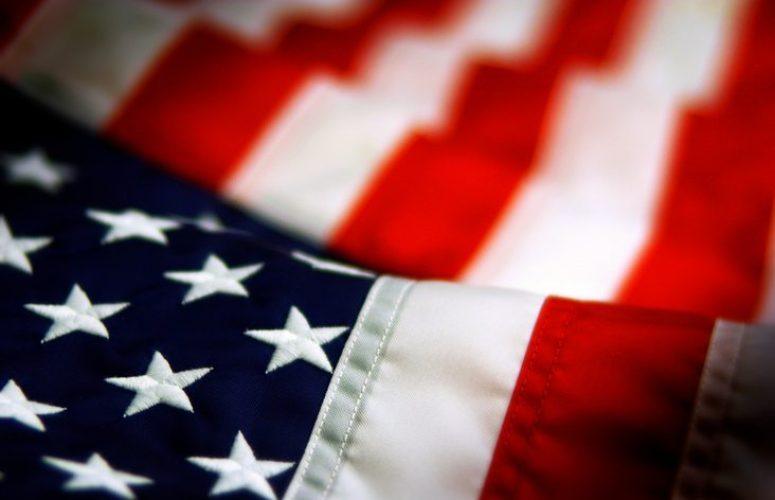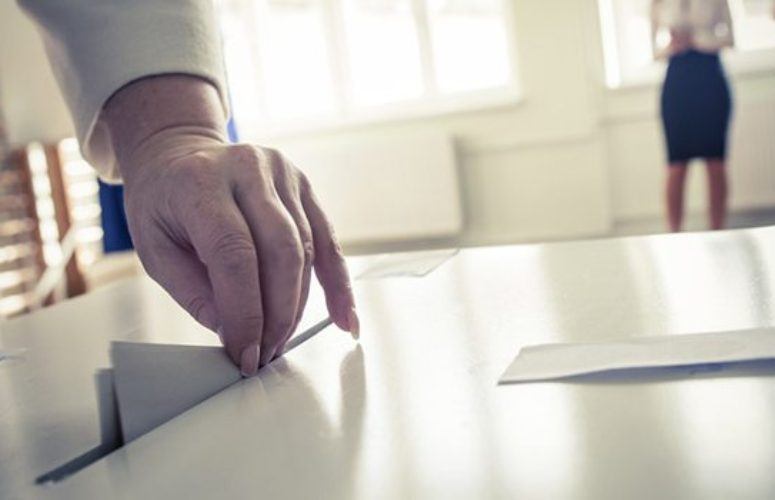
Monmouth Poll Reveals Favorability of Presidential Candidates
On Dec 10, 2019Looking ahead to 2020, President Trump’s reelection prospects are holding steady in the latest Monmouth University Poll. Former Vice President Joe Biden, Massachusetts Sen. Elizabeth Warren, and Vermont Sen. Bernie Sanders continue to swap positions as the top three contenders for the Democratic nomination. Former New York City Mayor Mike Bloomberg enters the race with low favorability ratings among voters of every partisan stripe.
Just over 4-in-10 (43%) registered voters feel that Trump should be reelected, while a majority (54%) say it is time to have someone new in the Oval Office. These numbers have not really budged in the past month (42% reelect and 55% someone new in November). The current results are statistically similar to late September when news broke about the Ukraine call (39% reelect and 57% someone new) and August when the House impeachment inquiry was just getting started (39% reelect and 57% someone new).
“The impeachment hearings over the past month have not moved the reelection needle in either direction,” said Patrick Murray, director of the independent Monmouth University Polling Institute.
Trump currently has a personal rating of 46% favorable and 52% unfavorable among registered voters. The president’s personal rating has grown slightly more positive since news of the Ukraine call first broke, but the shifts so far are not statistically significant. He had a 44%-54% rating in November and a 43%-56% rating in late September. Moreover, there continues to be a wide net negative gap among those who have a strong opinion of the president – 33% very favorable versus 47% very unfavorable.
The leading Democratic contenders to take on the president in 2020 have also seen little change in their own personal ratings over the past month. Biden has a rating of 43% favorable and 50% unfavorable among all registered voters (identical to his 43%-50% rating in November), Sanders has a rating of 41% favorable and 54% unfavorable (identical to his 41%-54% rating in November), and Warren has a rating of 40% favorable and 50% unfavorable (slightly more negative than her 42%-44% rating in November). South Bend, Indiana Mayor Pete Buttigieg gets a 34% favorable and 35% unfavorable rating, which is a slight improvement from his 27%-34% rating in November.
Bloomberg has a 26% favorable and 54% unfavorable rating among all registered voters. Bloomberg earns a split decision (40% favorable and 39% unfavorable) from Democrats and Democratic-leaning voters, but has a decidedly negative rating among Republicans and Republican-leaners (12%-72%) as well as among independents who do not lean toward either party (26%-51%).
“Bloomberg said he got into this race because he wants to defeat Trump, but his campaign kicks off with even lower ratings than the incumbent. That is not the most auspicious start, but views of Bloomberg are not as deeply held as they are for Trump, so he has room to shift those opinions,” said Murray.
Bloomberg’s rating among Democrats and Democratic-leaners is much lower than other contenders in the field. Warren (76% favorable and 15% unfavorable), Biden (76%-20%) and Sanders (74%-21%) have broad popularity among party voters. Warren’s rating has ticked down slightly since November (from 79%-9%), Biden’s has held steady (from 76%-19%), and Sanders’ has ticked up (from 72%-25%). Buttigieg earns a 53%-18% rating among his fellow Democrats, similar to his rating in November (49%-16%). Bloomberg’s within-party favorability is also worse than entrepreneur Andrew Yang, who currently gets a 42%-17% rating.
Bloomberg’s current net +1 party rating (40%-39%) is similar to what he earned in a Monmouth poll conducted back in March when he initially flirted with a presidential run. Democratic opinion was evenly divided then at 27% favorable and 26% unfavorable. He had a somewhat more positive rating in Monmouth’s initial poll of the potential Democratic field in January 2019 (35%-25%).
Democrats and Democratic-leaning voters continue to be divided over who they want to put up against Trump in 2020. The top contenders continue to be Biden (26%), Sanders (21%), and Warren (17%). However, these three are in a slightly different order than where they stood last month (23% Biden, 23% Warren, and 20% Sanders) or in late September (28% Warren, 25% Biden, and 15% Sanders). Buttigieg is the preferred choice of 8% of Democratic-identifying voters (similar to 9% in November and 5% in September).
Bloomberg enters the race at 5% support nationally. He had 2% support in March and 4% in January when he was included as one of the potential contenders for the Democratic nomination. Other candidates registering support in the current poll are Minnesota Sen. Amy Klobuchar (4%), Yang (3%), New Jersey Sen. Cory Booker (2%) and seven other candidates who earn 1% or less.
The poll also finds that more Democrats and Democratic-leaning voters continue to prefer a candidate who would be stronger against Trump even if they disagree with that candidate on most issues (56%) than say they want a nominee who aligns with them on the issues but would have a hard time beating Trump (30%). This result is virtually unchanged from the 58% to 34% response this question received in May and the 56% to 33% result in January.
Among those Democrats who prioritize electability, 31% support Biden in the “horse race,” followed by Warren (18%), Sanders (17%), Buttigieg (8%), Klobuchar (6%), and Bloomberg (4%). Among those who stick with issue alignment, 33% support Sanders followed by Biden (15%), Warren (15%), Buttigieg (12%), Yang (5%), and Bloomberg (3%). In Monmouth’s May 2019 poll, electability voters named Biden (36%) as their top pick, followed by Sanders (14%) and Warren (10%), as well as California Sen. Kamala Harris (14%) who has since dropped out of the race. Among those who valued issue alignment over electability in May, Biden (26%) led Sanders (18%), Warren (9%), Buttigieg (8%), and Harris (7%).
The poll also asked all registered voters if the nation’s first president was better than either of the two most recent occupants of that office. For the current incumbent, 71% say Washington was better while 15% pick Trump. Against the current president’s immediate predecessor, Washington gets the vote of 58% compared to 33% who say Obama was better. Among Republican voters, Washington edges out Trump by a narrow 44% to 37% margin. Among Democratic voters, though, the “Father of Our Country” trails Obama by a 29% to 63% margin. It’s worth noting that among independent voters, Washington does even better against Trump (72%-11%) than against Obama (62%-28%). This question was inspired by a recent Economist/YouGov Poll that asked whether Trump or Abraham Lincoln was a better “Republican president.”
“There is a combination of factors at work when you ask a question like this. Democrats may be more likely than Republicans to be influenced by recency bias, valuing what they are familiar with over historical opinion. It’s a fun question to ask, but I’m not sure what it means,” said Murray.
The Monmouth University Poll was conducted by telephone from December 4 to 8, 2019 with 903 adults in the United States. The results in this release are based on 838 registered voters and have a +/- 3.4 percentage point sampling margin of error. This release also includes results based on 384 voters who identify as Democrats or lean toward the Democratic Party which have a margin of error of +/- 5.0 percentage points. The poll was conducted by the Monmouth University Polling Institute in West Long Branch.
To access more business news, visit NJB News Now.
Related Articles:





